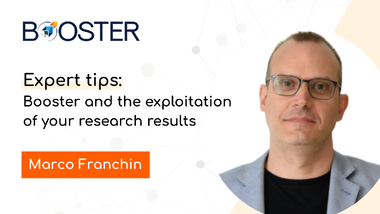More than 1200 EU-funded projects are benefitting from our support services
10/10/2023
Research teams often have to face many hurdles while trying to achieve impact of their research’s results. That’s why, since 2020, the EC initiative to boost research impact, Horizon Results Booster, has been helping projects through a range of free support services. Recently HRB team has successfully reached the number of 800 services delivered to more than 1200 projects (corresponding to more than 8.600 organizations).
Keep reading to discover how your Horizon 2020 funded project can take profit from this opportunity.
Counting Our Achievements: HRB's Services Statistics
Since HRB started, we have provided free expert support to more than 1.250 research projects involving over 8.600 organisations. According to data, most of the organizations involved (corresponding to 38.4%), are private entities, while higher or secondary education establishments are one in four. Research organizations represent 21% of all the beneficiaries of our support services.

In the valorization of research results, it is very common to talk about KERs, which are the specific results of research that will have the potential to be turned into commercially successful products, services, processes, standards, training courses or even policy recommendations. During the delivery of services, HRB experts guide the partners of the project in a learning experience in which new skills and competencies are acquired through the analysis of tools and methodologies that could be implemented for other results of the project benefitting of the services. Indeed, in each service dedicated to exploitation, business planning and go-to-market activities there is a limit on the number of KERs that could be analyzed with the help of the HRB expert.
In the following picture, there are the different percentages of the fields of application in each KER. The Service 1 – Portfolio Dissemination & Exploitation Strategy is showcased in three graphics: one for each module of the service. The most demanded service by projects to the date is Service 1 – Module 3 (PDESC) dedicated to assisting projects to structure an effective exploitation strategy. In its case, almost 40% of the identified KERs were intended to be services. After that, the most usual type of KER was policy related.
 As shown in the graphic, across the different services, there is a tendency from the projects to identify mostly KERs that will develop into services, policies, and digital solutions.
As shown in the graphic, across the different services, there is a tendency from the projects to identify mostly KERs that will develop into services, policies, and digital solutions.
More than 220 experts delivering services all over Europe are contributing to high quality Dissemination, Exploitation, Business Planning and Go To Market activities of EU funded projects, which often are very relived to know that this specialized support is available.
Horizon Results Booster supports a large variety of eligible projects with no limit on the result type, level of TRL, or field of expertise. Indeed, it is a comprehensive initiative supporting projects from a large variety of funding schemes. The largest number of applications to HRB services come from Research and Innovation Actions (RIA) while of course HRB supports many different funding schemes and often projects are pleased to learn that this support is made available.
Rosellina Di Santo, part of the Management Team of the initiative, shares her experience in working in HRB: “More than 220 experts delivering services all over Europe are contributing to high quality Dissemination, Exploitation, Business Planning and Go To Market activities of EU funded projects, which often are very relived to know that this specialized support is available. It is a key initiative by European Commission and the support provided in specific tasks – often perceived as arduous or incomplete- is resulting in a crucial help leading to the coveted goals. Eligible projects can avail of all the different HRB services and the service delivery is organized according to the characteristics and needs of the project”.
How can HRB help your project?
When we talk about free support services, we refer to a portfolio that ranges from supporting project groups in designing a joint dissemination plan to assisting beneficiaries in making their project results ready for commercialisation.. Here is an overview of these services in more detail:
- Portfolio Dissemination & Exploitation Strategy. The objective of the Dissemination services is to enhance the capabilities of Project Groups (PGs) in effectively disseminating and maximizing the visibility of a range of research outcomes. The Exploitation service assists individual projects in leveraging their research findings and empowering beneficiaries to enhance their exploitation strategies. It is composed of the following modules:
a. Identifying and creating the portfolio of R&I project results
b. Helping projects from the portfolio to design and execute a portfolio dissemination plan
c. Assisting projects to improve their existing exploitation strategy - Business Plan Development supports beneficiaries in bridging the gap between their outcomes and the market by facilitating the development of a robust business plan and helping them prepare to secure suitable funding for implementing project results.
- The Go-to-market service seeks to aid beneficiaries in preparing their project outcomes for commercialization. The service will help in identifying and overcoming potential hurdles that may impede the exploitation of project results, enabling beneficiaries to reach the commercialization goal.
Apply now and get free support services for your research. The services are available to all closed and ongoing projects funded under FP7, Horizon 2020 and Horizon Europe programs, independent of the funding scheme. The service implementation timeframe is from July 2020 to June 2024.


 (1)_small.webp)
_small.webp)

(8)_small.webp)